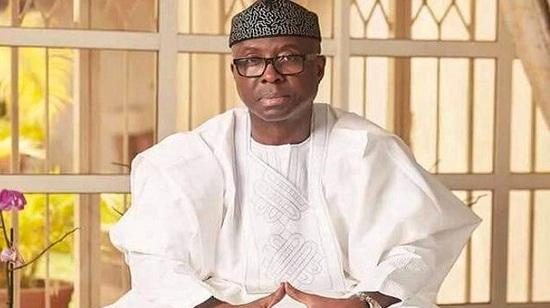This post has already been read 2013 times!
Despite the government’s diversification agenda and push for non-oil sector growth, members of the Organised Private Sector (OPS) have described the mounting imbalance in the structure of the economy since independence, as underscoring the growing decline in the non-oil sector productivity.
With such imbalance, they noted that the economy remains very vulnerable to global shocks and weak in economic inclusion.
Though economic growth trend, measured by the performance of the Gross Domestic Product (GDP), has been generally positive over the last two decades, the Lagos Chamber of Commerce and Industry (LCCI) however expressed worry that the economy is still structurally defective as it is too dependent on the oil and gas sector, creating serious vulnerability risks.
The Chamber, through its Director-General, Muda Yusuf stated that the challenges of production in the economy had grown progressively largely because of the quality of infrastructure; which is why the risk of industrial investment is high and continues to increase.
“It is impossible to have a vibrant manufacturing sector in the face of cheap imports into the country, and high production and operating cost in the domestic economy. Some of these imports are landing at 50% of the cost of products produced locally.
“Besides, manufacturers have to worry about high energy cost; they have to worry about high-interest rates of 20% and above; they have to worry about a multitude of regulatory agencies making different demands on them; they have to worry about massive smuggling and under-invoicing of imports, they worry about trade facilitation issues at the seaports and many more. For most manufacturing SMEs, it is a nightmare. Yet production is critical to enduring economic and social stability.
“The way forward is to address the fundamental constraints of manufacturing competitiveness in the Nigerian economy. Perpetual protectionism cannot fix this problem.
“The lack of political will to reform the oil and gas sector remains a major shortcoming of governance over the past decades.
“The quality of the business environment remains a source of concern to investors, especially in the real sector. Weak infrastructure, policy environment, and institutions had adverse effects on efficiency, productivity and competitiveness of many enterprises in the economy. These conditions pose a major risk to job creation in and economic inclusion across sectors”, he added.
To address some of the challenges, he urged that the government seeks innovative ways of effectively funding infrastructure in Nigeria, saying that without a sound infrastructure base, it will be difficult to achieve the various socio-economic objectives of government at all levels.
“We need to develop new strategies to attract private sector capital to the infrastructure space. This should cover the broad spectrum of infrastructure provision – roads, railways, airports, waterways, electricity and other forms of energy.
“We should prioritize the attraction of foreign direct investments by addressing the key investment environment issues to inspire investors’ confidence. FDIs have a much bigger potential impact on job creation, poverty reduction, and economic inclusion.
“The LCCI commends the decision to set up an Economic Advisory Council made up of economists of repute. This would surely facilitate the bridging of the skill gaps in economic management and foster the development of a sustainable framework for the acceleration of economic growth and development”, Yusuf added.



